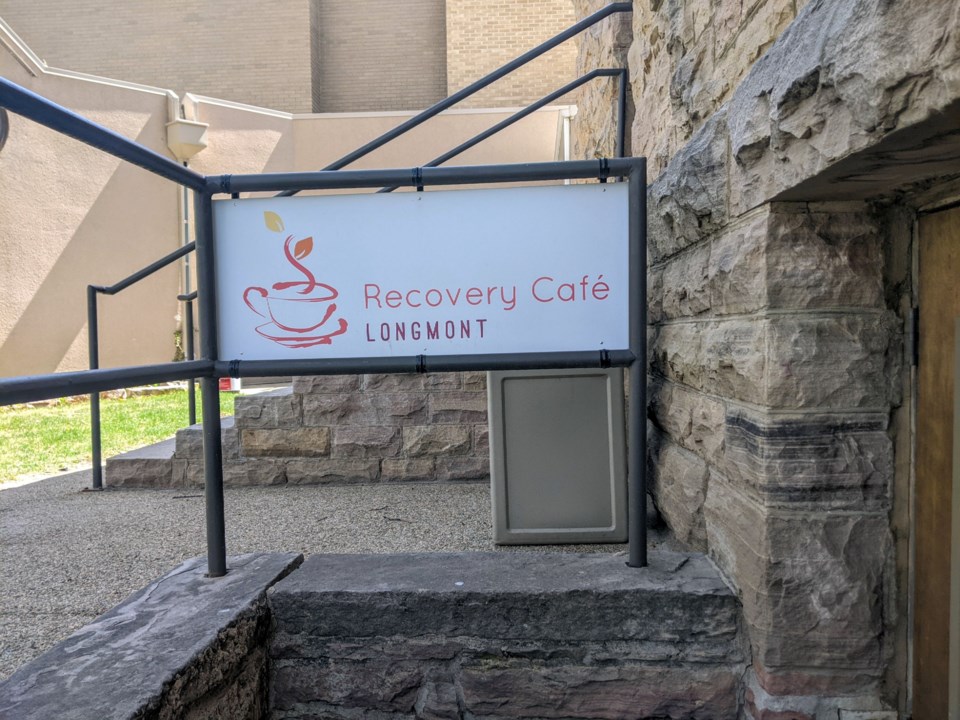With people considering their New Year’s resolutions, a new program at the Longmont Recovery Café offers science-based tools to people wanting to live happier and healthier lives by recovering from addiction.
Self Management And Recovery Training, known as SMART Recovery, is a decades-old program that started just a few months ago in Longmont. The Recovery Café offers the only in-person meeting in Longmont and the only open meeting in Boulder County using this program.
John Franko, a SMART Recovery Volunteer Facilitator, explained that the program can help with any addiction, whether that’s addiction to a substance like alcohol or drugs or a process like gambling, sex or eating. The program offers tools and exercises for participants with a focus on individual choice.
“The emphasis is really on self because we believe that it’s up to everybody to have their own individual approach to how they’re going to achieve recovery from either a substance addiction or a process addiction,” he said. “So it’s about self empowerment and we think that’s a really big deal.”
Meetings are free, secular and open to anyone. SMART Recovery can work in conjunction with other addiction recovery programs or it can stand on its own, which makes it a great program to bring to the Recovery Café, according to the café’s Peer Support Specialist Chris Poma.
“I believe it really ties in perfectly with Recovery Café’s mission because I think our big job is to know all those pathways,” he said.
SMART Recovery avoids labels like “addict” or “gambler,” according to Franko, because a person’s identity is not defined by their addiction and labeling is not conducive to recovery. He thinks the program is for anyone who is willing to give it a try.
“I would say that it’s for anybody who believes that they may have an addiction problem or somebody else is telling them that they may, because a lot of people that have addiction issues don’t realize it or buy into it,” he said. “... A lot of people who are addicted, particularly to substances but process addictions too, don’t really fathom how it’s affecting their life. If you’re into your addiction and you don’t really realize what’s going on, you don’t know that you’re hurting your spouse, that your children are seeing this happen.”
Developed by a Harvard trained physician, the program utilizes principals including emotional behavior therapy and cognitive behavioral therapy to help people use rational thinking over irrational thinking, along with motivational enhancement therapy.
Franko explained that SMART Recovery has four key points: building and maintaining motivation, coping with urges, managing thoughts, feelings and behaviors, and living a balanced life.
“One of the things that is behind a lot of relapsing is boredom,” he said. “People lose their love for passion or whatever you call it, but they lose interest in other things while they’re doing whatever their addictive behavior is. So what we want to do is have them rediscover those things that they love.”
Meetings are about mutual support and start with a check in, where people discuss things that have come up since they last met, which typically leads into a discussion about whatever theme has come up. This may include the introduction of tools, oftentimes with other attendees sharing tools that work for them.
Poma, who has been clean from his addiction for five or six years, said that he has still learned and benefited from SMART.
“Even though my main goal isn’t to stop using or doing behaviors, in a more refining way, the tools are great for day one to six years or a couple decades,” he said.
The meetings, which take about an hour and a half, typically end with a checkout, asking participants what they will take away from the evening. Because the group is just starting out, Franko said meetings have typically seen four or five participants.
There is no specific commitment in SMART Recovery, and Franko said that attending is the choice of the participant. The program does not penalize people who may relapse, instead treating it as a learning opportunity to further develop skills for next time.
“I’ve seen where the guilt of one singular event can cause a total meltdown, a total reversion back to those harmful behaviors,” Poma said. “I believe this can really help someone continue forward on their path as opposed to, I’ve lost all my clean time — I might as well dive right back in.”
SMART Recovery meetings are held 6:30 p.m. on Wednesdays at the Recovery Café, 402 Kimbark St, in the basement of the CENTRALongmont Presbyterian Church.
If that time doesn’t work, the Recovery Café offers other addiction recovery programs throughout the week, with more information at recoverycafelongmont.org. SMART Recovery is available at other locations across the Front Range with a meeting finder and more information at smartrecovery.org.



